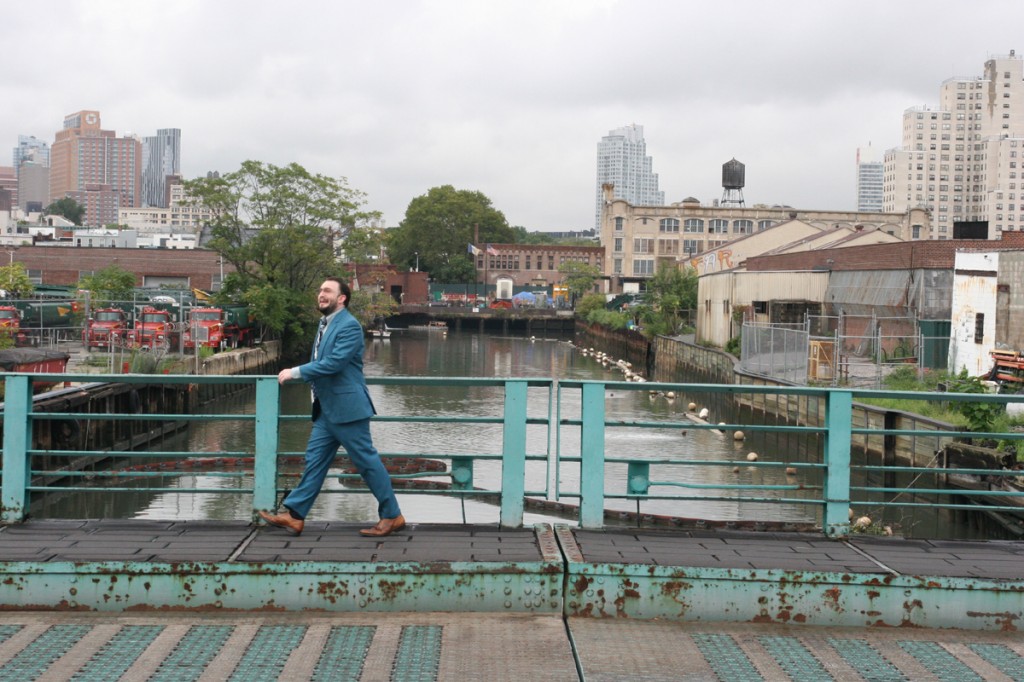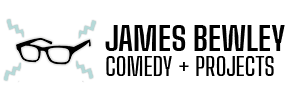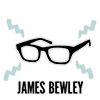
L Magazine Profile of Dale Radio
Once a month, Dale Radio makes a little magic at Union Hall. The podcast, taped in front of a live audience, features the musicians, comedians, performers, and filmmakers that make Brooklyn so dynamic and intriguing. Dale Seever, the host, is an intriguing character himself. The alter-ego of the podcast’s creator James Bewley, Dale has a quirky sincerity and enthusiasm that stands out to both his listeners and his guests. The next show will be taped at Union Hall tonight and will feature Adira Amram, Drew Grant, Keisha Zollar, and Allen Katz. James Bewley spoke to us about where Dale came from, what makes the Gowanus so lovable, and the importance of showcasing emerging artists.
How would you explain Dale Radio in a few words?
A podcast that rewards curiosity. It has interesting people from all different walks of life, hosted by a friendly older fella who enjoys the drink. I’m always so bad at boiling it down. It comes from a lot of different places, so I’m always coming up with exactly what it is I’m doing. It’s a basement talk show hosted by a fictitious person.
So, where did Dale begin? What’s his life story?
I started actually performing the character 11 years ago, but I think I was probably born with it, if it’s not too weird to picture, like, a symbiotic 55-year-old entertainer twin being born with a child. Dale’s a combination of people I grew up with and comedian hosts that I’ve looked at or have always been influenced by. There’s a good foundation of storytelling and a lot of humor in my own family, and this is a way of sort of honoring that and of channeling a lot of that. I started performing him in San Francisco, when I was part of a sketch comedy group there and hosting cabaret nights. It’s like a second skin for me to be him; it came out fully realized. There was no hunting for the character.
Dale always lived!
He was always there, just waiting for me to release him. And of course, you find a good $13 suit and a dollar pair of sunglasses, give yourself a combover, you’ve got a character. I had done theater and that kind of stuff growing up, and I was always cast as an older character, so at some point I kind of remember saying, “I just want to be a great character actor when I’m 55,” which is kind of a terrible career plan. You would just be an obscure 55-year-old person, which is ok, but it wasn’t like, “I’m gonna be rich and famous when I’m 20!” Some people do that, and good for them, but I set this other kind of weird goal to do and I said, “Well, I might as well just be this guy now and see what that trajectory leads me to.” I’m sure it’s going to be a lot of fun to do Dale when I’m 55. Did that answer it?
There is a complicated backstory for him, and I just came from the Whitney Museum to see their Rituals of Rented Island exhibition that they have up. It’s all performance artists and things from the 70s and 80s and making work in New York. That is my touchstone: performance art, and theater and visual performance is my background. So it was kind of nice to touch base. I did that today, and this whole Dale thing is my artistic practice. It’s connected to that world, and I’m not trying to get a tight five minutes, obviously. In 130 episodes, I haven’t had a tight five minutes ever, or even a tight hour. I don’t do the same jokes over and over again, I’m not working on material, I’m really trying to craft this character and make a story for him that’s evolved over the last 11 years. As I’ve done it more, I just incorporate my own stories for him. I just give voice to the things that have happened to me through the lens of Dale.
When you’re talking to other creative people for your web series or for your radio show, do you stay Dale the entire time, even when you first meet them?
I don’t show up in the costume when I do the one-on-one interviews and things, so I go as me. I say hello and kind of introduce them, but I don’t like to talk too much beforehand because I’m really awkward in that moment; I’m kind of between characters and I have something I want to get into. So as soon as we turn on the mic, it’s an hour of just me doing Dale and then I stop and then it’s, “Thank you very much and have a good day!” Then I might never see that person again—it’s weird, I’m not gonna say it’s not weird. And many times I’ve been having a conversation with somebody as Dale and think, “Why am I not just having this conversation as myself? Why this level of artifice?” But I don’t know, I can’t break it now! [Laughs] I’m very comfortable as him, he allows me to do things and say things and go on tangents that would for whatever reason be inhibited in my everyday life.
Why did you choose Gowanus?
Or did the Gowanus choose me? I moved a few blocks from there. When I moved from LA to New York, we moved to Carroll Gardens and lived very close to the Gowanus and there’s a literal stink in there, but there was also a little bit of a buzz and things were happening. I knew some people that were getting involved in art collectives and art projects that were happening around there. So it was just like, here’s this horrible, ugly, forgotten child kind of a thing that is just rank and filthy and disgusting, yet it’s also one of these places where investment is coming in, and you can see that creative class wave trying to make something happen and push it forward. It just seemed like this is the right time to, in a way, document some of the creative people that are making work around there. So, a lot of the early seasons were talking to people that were making work around the Gowanus or running businesses down there and I still try to have that aspect of the show. With Gowanus, I keep having this theory that if you just pick the thing that was the least cool 10 years ago or five years ago, that’s the thing that’s going to make it back. Like mom jeans and big glasses and scrunchies, or whatever it is, you can bet on that. Whatever is the most uncool thing now, buy a bunch of it. Put it in your closet.
Those are words of wisdom.
Thank you. People should listen! Yeah, with the Gowanus it was like, “Ok, let’s see what happens with this place.” And now there’s condos going up and it’s a moment of transition. My professional life has been supporting emerging artists, emerging practices, and that kind of stuff, so there is a consistency with my outside-of-Dale life. I was like, ok, let’s support, let’s identify, let’s acknowledge that there’s really great creative things happening.
How do you find the talent that you highlight on the show?
I find them charming and delightful! I used to program museums and run public programs, and so I know how that works; I think I have a good email voice. But most days, if it’s people that I’m intrigued by or I think they’re doing something that’s interesting, I try to have a good balance for an evening to make sure it flows or that we’ll get someplace interesting. I have a lot of art contacts and that kind of thing, but it’s reaching out to people that I admire, that I think are doing really great work, and bringing them into the fold to kind of play with Dale. To have some fun—and some people do more than others, and I think some people are kind of thrown by it. But others get it, and we have a great time.
Do you have a favorite past guest?
There have been shows that I felt like I’ve been more energized by. I script all the shows but leave room for improvisation, but I think there are some nights that I get off of that script and just go with whatever’s happening, and when those guests have allowed that to be the case, those tend to be my favorite shows. And that can be a bunch of different guests. It’s not any one guest that kind of pushes that over the top. There have been people that I’ve been like “I am so thrilled that I get to talk to you,” and one of them has been somebody who was on The Lawrence Welk Show. I did a show in LA and I reached out to her and she did it, which is like a miracle to me. But I love The Laurence Welk Show and to have Mary Lou Metzger on the program talking to me is really fantastic. But in this whole season, we’ve had great people, and sometimes it’s the people that you think are… they’re not performers. There are people who are pie-makers or they’re people who are alcohol enthusiasts that write for Liquor.com. It can be from very different worlds, but it just opens up whole new avenues of conversation, and I think that’s great. I get to let slip some other knowledge that I may have that’s hard to bring up within the context of comedian to comedian. But if we’re talking about some kind of obscure theater practice or art world or art school or making a go of it, you get into some stuff. It’s kind of interesting.
Why did you choose podcasts as a medium?
I can remember carrying around my little black radio, it was a cassette player. I used to do radio, little programs and things, little audio pieces sometimes. They weren’t even necessarily connected to the radio, it was just, “What happens with this? What can you record, and can you make a world out of that?” I’ve been drawn to NPR and that kind of thing, and experiment with audio. There’s something about that thing that everybody says about immediacy and that intimacy that’s afforded by that. Also, when I started, I’d just moved to New York; I didn’t have a lot of space. This is something that you can set up in your home, and put a cushion behind the microphone, and I can conjure this character through. So much of it is the voice, and the intonation and the kind of musicality of Dale. So, honing that by doing the recording was very helpful. Then the live show kind of came out of that.
What is the number one thing you hope people take from Dale Radio?
Well, I certainly hope they have a good time. It’s got a lot of joy to that character. He’s sometimes described as like your uncle. I feel like an older uncle who’s drinking whiskey. What I think is different about it is that it’s not creepy, it’s not mean-spirited; whatever dark side there is has to do with Dale’s own impatience with not only his own success, but, like, he wants to make a difference in some weird way. He wants to connect. If that doesn’t happen, he gets very impatient or dismissive. But, in general, I’m up there and you laugh. It’s a ridiculous situation. So, I’d hope that people learn something about the guests or are inspired to do something, but we’re really just having a good time in a basement with great people and it’s really that, it’s just to lift things up a little bit. Sometimes, I try to find things that I personally am not enthusiastic about and put it through the Dale lens, which is that he’s excited about it. So, if he gets to wait while somebody checks their phone at the top of the subway stairs, he’s going to talk about how great that is, because it gives you so much more room to make it funny. If you say, “That’s annoying” or “I don’t like it” and go negative with it, you don’t have as much room to play. I think that’s part of his character: “Let’s be enthusiastic and see where that leads us.”
That seems like a good life philosophy in general.
Yes. Dale’s a kind person, and I hope people come out and support the show and tune in and all that kind of stuff. We’re doing something that I think is unique. It’s really exciting.
The original article was posted to The L Magazine’s website on January 20, 2014 and is available here.

